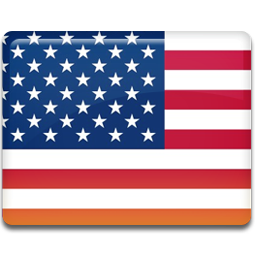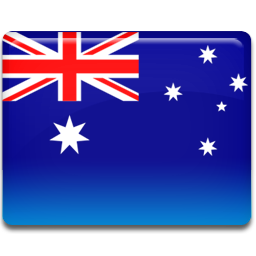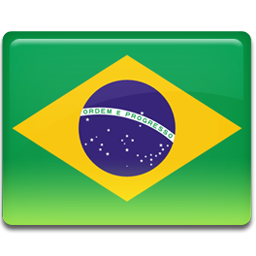Safety Management Systems
Advanced Certificate in Designated Person Ashore (DPA)

Advanced Certificate in Designated Person Ashore (DPA)
This course is approved by CPD Certification Services, UK.
Course Approval No. A033499
View CPD Certificate
- Course Program
- Who Should Attend
- Compliance with regulations
- Duration and Teaching Methods
- Course Benefits
- RPL
- Course Content
- Certification
Introduction
Effective implementation and verification of a (safety) management system requires periodical Lead audits. The approach to and scope of an audit differs widely from an inspection.
The requirements for auditing the management system within companies and on board ships have highlighted the subject of competence of Lead auditors.
Our course provides you with the knowledge and expertise necessary to plan and conduct combined ISM, ISPS and MLC audits and verifications. Through the use of interactive group exercises you will also improve your communication skills and thus strengthen your overall performance as an auditor.
Objectives
This course objective is to develop the knowledge and skills required to conduct a full audit of an organization’s Management System in the capacity of Lead Auditor dedicated for the ISPS, MLC and ISM Code. It will also give the confidence to effectively audit a Management system in accordance with internationally recognized best practice techniques.
Become a certified ISPS – MLC – ISM Lead auditor and demonstrate your commitment towards continual improvement through our ISPS – MLC – ISM Lead Auditor course.
Start Date: Upon completion of your enrollment and payment process
Where: Delivered online with experienced education departement and the support of leading industry experts
Duration: 2 months
Qualification of the Program : Qualification of Lead auditor (ISM, ISPS, MLC).
Core audience:
This course is dedicated to :
Lifting Engineers
Lifting & Rigging Specialist
Structural Engineers
Project Engineers
Project Managers & Planners
Construction Managers & Engineers
Operations Managers
Transport & Lifting supervisors
Project Cargo Specialist
Marine Warranty Surveyors
Cargo Superintendents
Marine Risk Engineers
Freight Forwarders
Sales Engineers
Offshore Installation Engineers
Naval Architects / Marine Engineers
HSE Managers & Engineers
CEOs and Company owners.
HR Manager, Assistance. Inspection: Superintendent, Fleet Manager, Chief Operating Officer, CSO, Assistance. Quality / ISM: Quality Manager, Designated Person, Assistance.
Crewing Agency: Crewing: Crewing Manager, Assistance
On Board Personnel: Nautical Officers, Engineers
Captains, Chief Engineers, Chief Officers / First Officers, Directors, Managing Directors, Marine Surveyors, Masters, Principal / Ship Owners, Self Employed, Surveyors, Technical Surveyors
But the course is also valuable to Classification Societies, Marine Insurers, P&I Club Managers, Port Authorities and Coast Guard personnel amongst others.
Insurance Company Underwriters, claims handlers, and members of the legal profession
Service providers, Surveyors, Inspectors, Analysts, Technical advisers
Practicing cargo agents, Freight forwarders, Shipping Industry starters, cargo consolidators
The course is conducted online and provides a wonderful chance to build your international professional network without having to afford any travel expenses. Often more than 15 nationalities participate and are introduced to each other thanks to our education portal features.
Minimum Entry Requirements
There are no prerequisites for this Course, however, in order to fully benefit from the training, it is recommended that the participants are either new entrants to the shipping industry or professional staff in shipping companies, ship brokers, port agencies, insurance inspectors, banks and similar service organisations can gain a valuable understanding of their customers roles and responsibilities. The comprehensive documentation that accompanies the course has been designed as a useful guide for future reference.Who Should Attend
The Maritime field is extremely broad and brings about relationships with a variety of people with varying levels of experience from the many different aspects of shipping therefore this Course is suitable for a broad range of maritime related professionals and regularly attracts ships’ officers and shore-based management staff.But the course is also valuable to Classification Societies, Marine Insurers, P&I Club Managers, Port Authorities and Coast Guard personnel amongst others.
The course is conducted online and provides a wonderful chance to build your international professional network without having to afford any travel expenses. Often more than 10 nationalities participate and are introduced to each other thanks to our education portal features.
- Producers, Traders or Commodities Brokers and Suppliers
- Ship agent, Shipbrokers
- Shipowners, Charterers, Shippers and Maritime Attorneys
- Purchasers and Technical Managers and Superintendents
- Captains, Chief Engineers and Ship Staff
- Insurance Company Underwriters, Claims Handlers, and Members of the Legal Profession
- Service Providers, Surveyors, Inspectors, Analysts, Technical Advisers
- Practicing Cargo Agents, Freight Forwarders, Shipping Industry Starters, Cargo Consolidators
- Other Professionals.
Course Benefits
Whichever way you choose to take the course, you will receive:Expert-Level Digital Badge
Digital badges are web-enabled versions of a credential, certification or learning outcome that can provide valid verification of your credential. They protect the integrity of your credential by providing a link to the verified data from IMA that cannot be falsified. Earners can share their credentials in their email signature, resumes and across various social media platforms, with their contacts, and the greater community enhancing their profile visibility and recognition.Tutors Gateway
Our tutors are renowned trainers and managers with strong academic and industry backgrounds, with sector-specific skills and practical experience.They are therefore able to bring a wealth of up to date experience and competency.
High Quality Learning Materials
All participants in this course will be provided with a wealth of documentation, including slide presentations, case studies and exercises.The course material is current and accurate and is regarded as the most comprehensive study material of its kind at this level.
Career & Employability Service (24 Months)
Participation in this course will entitle you to having your CV inserted in the IMA database and distributed to companies, organizations and head hunters of the IMA’s international network. With our certificates, the student have the chance to apply with leading companies in the shipping industry and gain access to work-experience placement opportunities. After you finish your course, you can get help, advice and support for up to 24 months from our Careers and Employability service as you advance in your career.Registration in the IMA Alumni Portal
Participation in the Advanced Diploma’s course entitles you to be enrolled in the IMA Alumni Association, the international network through which students of the IMA can share ideas, experiences and projects. This portal is designed to raise the standard of professionalism in the shipping industry and improve workforce skills, competitiveness and employability of our alumni and community members.IAMCS Accredited Professional Membership
This program qualifies the participants as cargo surveyors, as a direct benefit of our accreditation from the international association of Marine Consultants and Surveyors, students will receive exemptions from the academic requirements at either “accredited member or full Membership level” of the international association of Marine Consultants and Surveyors.Course Content
This Advanced Diploma comprises three core units and a specialisation one:
| UNIT OF COMPETENCY CODE | COURSE TITLE |
NOMINAL HOURS | TEXTBOOK | TRAINING TOPICS |
|---|---|---|---|---|
| SMS007F | DESIGNATED PERSON ASHORE (DPA) | 20 | VIEW DETAILS | VIEW DETAILS |
Duration
Each module is expected to involve 6 hours of learning time each week, making a total of 52 hours per 2 months period and the associated tests might be completed in less than 2 hours.The training sections don’t have to be completed in one session, you may return to it as often as you like, the system will bookmark your last page so you are returned directly to where you exited the program.
Timeframe
This course will remain open for 9 months for completion or revision starting from the date of course uploading on the student portal.One or more extensions of study totaling not more than 6 months may be requested by a student and authorised by the Course Director. The request should be made at least one day prior to the end of the period of study.
Further extensions are used where exceptional circumstances necessitate an extension of the normal period of study in order to complete the final test. An agreed extension may involve the payment of small additional fees.
Teaching Methods
In line with the IMA’s general approach and the best international standards, the course is designed with the aim of providing excellent training with an emphasis on its concrete application in the job, professional and company principal related activities.The training include a course framework (detailing the scope, objective, entry standards, and other information about the course), a course outline (timetable), a detailed teaching syllabus (including the learning objectives that should have been achieved when the course has been completed by students), guidance notes and summary of how the students will be evaluated.
The course involves mainly independent study with the assistance of the educational team; study time, in general, is to be spent on activities such as studying the lecture course material and textbooks and preparing your coursework in order to be ready to take the final test.
Your progress in the subjects taught will be tested and consolidated through exercises related to actual cargo surveying cases.
Modes of attendance
This course can be attended only:Online, via a cutting-edge web platform.
Compliance with regulations
International Maritime Academy is an accredited training institution by the International Association of Marine Consultants and Surveyors. The IMA methodology and tools are based upon long-term experience in development of training programs and best practices while ensuring compliance with maritime codes, conventions and regulations in the shipping industry.This course is intended to facilitate access to the knowledge and skills demanded by increasingly sophisticated maritime technology, it is also designed to meet the requirements of:
- The United Nations and the Economic Commission for Europe Code of uniform standards and procedures for the performance of draught surveys.
Assessment
Advanced Diploma level units are assessed by:- Coursework, dissertations
- Analysis of topical case studies
- Written reports
- Online examination.
In addition to supervising the student’s homework assignments completion and training progress closely against the giving deadlines, we provide the following services:
- Helping students in course selection and program planning.
- Consulting and advising students on long-term career goals.
- Consulting and supervising online coursework related to subjects we provide training in.
- Helping students with questions through email or over the phone at a convenient time.
- We often provide students with extra eBooks, free study resources, and extra practice sheets.
- Students are encouraged to contact the education support team, who strive to address learning needs creatively and with care while you are completing the course.
- Enhanced workers prospect for career advancement in the shipping industry through a structured progression program and pathway.
- Provide the trained workforce with skills and industry recognised formal qualifications
Certification
On successful completion of the course, you will be rewarded with an Advanced Certificate in Designated Person Ashore (DPA) . Those participants who could not complete the training will be rewarded depending on their current achievements with either the Diploma or Certificates on the completed subjects.RPL & Skills Recognition
Sometimes an experience is more valuable than a qualification. Thanks to Recognition of Prior Learning or, RPL, now your previous skills, experience and working knowledge can lessen the time it takes you to complete a course and get you working towards your career goals faster. It can be difficult to find the time and effort to fit an entire course into our lives, especially for those already working and juggling other commitments. Despite the convenience of online courses, there can still be an issue with time. This is where Recognition of Prior Learning (RPL) comes into play, where your previous skills, experience or qualifications can shorten the time it takes to undergo a course and allow you to become eligible for qualifications you may not otherwise be able to do. For instance, you can use RPL to claim some but not all credits on a level of the course (for example, to avoid completing a module that covers the knowledge you already have).Sources of RPL
RPL can come from previous study, employment, voluntary work and training courses, including courses and qualifications you didn't complete. RPL is also known as prior learning assessment (PLA) and prior learning assessment and recognition (PLAR).Types of RPL
There are 3 types of RPL you can put towards a qualification:1. Credit transfer
2. Prior certificated learning
3. Prior experiential learning
You can put more than one of these types of RPL towards a qualification.
1. Credit transfer
Credit transfer is when you put credits from a previous higher education qualification towards a new qualification. We can accept credits from qualifications you've completed in the last 10 years.Higher education qualifications include Professional Certificates, Professional Diplomas, Foundation and Bachelor's degrees, HNC and HNDs, and Master's degrees issued after the successful achievement of either web-based distance learning programs or traditional classroom education.
If you started but didn't complete a higher education course or you have a higher education qualification or credits from an educational institution, you may be able to use prior certified learning (see below) instead of credit transfer.
2. Prior certificated learning
Prior certificated learning is a higher level learning that didn't result in a higher education qualification or credits.This can include professional development and employment-based awards, qualifications awarded by professional bodies, non-university higher education, unaccredited institutions of higher education, and university courses you didn't complete.
3. Prior experiential learning
Prior experiential learning relates to knowledge and skills you've gained through previous marine industry experience. For example, through employment or voluntary work.Applying for RPL
The way you apply for RPL depends on the type of RPL you want to put towards your qualification.Before you apply for RPL, you need to have applied for your course or be registered on it. Details of how to apply will be confirmed by the course's RPL advisor.
Applying for credit transfer RPL
To transfer credits from a previous higher education level qualification towards a new qualification, complete this form RPL Application Form and send it to info@internationalmaritimeacademy.eu.Applying for prior certificated learning and prior experiential learning RPL
To convert prior certificated learning and prior experiential learning into credits you can put towards a qualification, you'll need to put together a portfolio of evidence with your application.To do this, complete this form RPL Application Form and send it with your portfolio of evidence to info@internationalmaritimeacademy.eu. We'll put you in touch with your course's RPL advisor. Defence forces training and experience:
Some defence forces training and experience have standard RPL credit ratings and won't need a portfolio of evidence.
Getting a decision
You'll get a decision on your application for RPL within 3 working days of submitting your form.If you don't agree with the decision, you can appeal it by emailing info@internationalmaritimeacademy.eu.
How much does RPL cost?
Applying for RPL is free for all of our courses.Copyright © 2022 International Maritime Academy .









